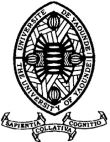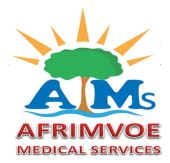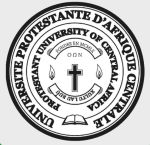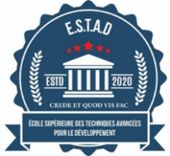Congenital Thoraco-Lumbar Scoliosis with Hemi Vertebra in a 16-Year-Old Male: A Case Report
Scoliose Thoraco-Lombaire Congénitale avec Hémivertèbre chez un Adolescent : À Propos d’un Cas
DOI:
https://doi.org/10.5281/hra.v3i4.6547Keywords:
Congenital, Thoraco-lumbar, scoliosis, Hemivertebra, Young man, DoualaAbstract
ABSTRACT
Scoliosis is a spinal deformity characterized by a lateral curvature of the spine in the coronal plane. It is a rare phenomenon which affects various age groups in children and adolescents. Most cases of scoliosis are idiopathic but other causes due to congenital malformations, neurological, muscular and collagen disorders are also found. Although not symptomatic most of the time, patients with scoliosis can suffer from stigmatization and psychological distress of being different from others. The goal of the treatment is to be able to correct the deformity and restore a normal growth curve and also for disfigurement reasons. We report the case of an adolescent male with congenital thoraco-lumbar scoliosis and hemi-vertebra. On physical examination, he was thin and had an S-shaped midline curve on his back with mild right hip gibbosity. Laminectomy and arthrodesis were done using 15 pedicle screws (4.5x40mm for thoracic vertebra and 5.5x50mm for lumbar vertebra), three connectors and two rods. Follow up after surgery was uneventful with no post-op complications. A post-operative x-ray obtained four days after surgery was unremarkable. The patient was verticalized at 10 days after surgery and had no motor deficits. The patient was discharged on after 14 days post-op.
RÉSUMÉ
La scoliose est une déformation de la colonne vertébrale caractérisée par une courbure latérale de la colonne dans le plan coronal. Il s'agit d'un phénomène rare qui touche différentes tranches d'âge chez les enfants et les adolescents. La plupart des cas de scoliose sont idiopathiques, mais d'autres causes dues à des malformations congénitales, des troubles neurologiques, musculaires et du collagène sont également observées. Bien qu'ils ne présentent pas de symptômes la plupart du temps, les patients atteints de scoliose peuvent souffrir de stigmatisation et de détresse psychologique du fait d'être différents des autres. L'objectif du traitement est de corriger la déformation et de rétablir une courbe de croissance normale, mais aussi de remédier au problème de défiguration. Ce cas clinique est celui d’un adolescent atteint d'une scoliose thoraco-lombaire congénitale avec hémi-vertébrale. À l'examen physique, il était mince et présentait une courbe médiane en forme de S sur le dos avec une légère gibbosité de la hanche droite. La laminectomie et l'arthrodèse ont été réalisées à l'aide de 15 vis pédiculaires (4,5x40 mm pour la vertèbre thoracique et 5,5x50 mm pour la vertèbre lombaire), de 3 connecteurs et de 2 tiges. Le suivi postopératoire a été simple et n'a donné lieu à aucune complication. Une radiographie postopératoire a été réalisée quatre jours après l'intervention. Le patient a été verticalisé 10 jours après l'opération et ne présentait pas de déficit moteur. Le patient est sorti de l'hôpital 14 jours après l'opération.
References
1. Bridwell KH, Gupta M. Bridwell and DeWald’s textbook of spinal surgery. Lippincott Williams & Wilkins; 2019 Nov 4.
2. Konieczny MR, Senyurt H, Krauspe R. Epidemiology of adolescent idiopathic scoliosis. Journal of children’s orthopaedics. 2013 Feb;7(1):3-9. [Internet]. [cité 26 janv 2025]. Disponible sur: https://journals.sagepub.com/doi/full/10.1007/s11832-012-0457-4
3. Gouveia AR. Congenital scoliosis due to Hemivertebra: treatment options (Master’s thesis, Universidade do Porto (Portugal)). [Internet]. [cité 26 janv 2025]. Disponible sur: https://www.proquest.com/openview/aaeafb1c91f2d0dfef171e76d27189ea/1?pq-origsite=gscholar&cbl=2026366&diss=y
4. Batra S, Ahuja S. Congenital scoliosis: management and future directions. Acta Orthopaedica Belgica. 2008 Apr 1;74(2):147.
5. Wang S, Zhao Y, Du Y, Zhang J, Yu B. The incidence and interrelationship of hemivertebra and concomitant cardiac abnormalities in congenital scoliosis. BMC Musculoskelet Disord. 31 juill 2023;24(1):621.
6. Haouas MY, Elkhamouye A, Aadoud K, Hilmani S, Ibahioin K, Lakhdar A. Scoliosis secondary to neglected Hemivertebra: A case report. Int J Surg Case Rep. 1 juin 2024;119:109725.
7. Yang JH, Chang DG, Suh SW, Kim W, Park J. Clinical and radiological outcomes of hemivertebra resection for congenital scoliosis in children under age 10 years: More than 5-year follow-up. Medicine (Baltimore). 7 août 2020;99(32):e21720.
8. The conservative treatment of congenital scoliosis with hemivertebra: report of three cases | Scoliosis and Spinal Disorders [Internet]. [cité 26 janv 2025]. Disponible sur: https://link.springer.com/article/10.1186/1748-7161-8-S1-O51
9. He JT, Liu FY, Hu WM, Liu JJ, Xia B, Niu XQ, et al. Comparison of the Curative Efficacy of Hemivertebra Resection via the Posterior Approach Assisted With Unilateral and Bilateral Internal Fixation in the Treatment of Congenital Scoliosis. Front Surg [Internet]. 1 avr 2022 [cité 26 janv 2025];9. Disponible sur: https://www.frontiersin.org/journals/surgery/articles/10.3389/fsurg.2022.821387/full
Downloads
Published
How to Cite
Issue
Section
License
Copyright (c) 2025 Ndome Toto Orlane, Haman Nassourou Oumarou, Nana Theophile, Bello Figuim, Palaï John, Djientcheu Vincent de Paul

This work is licensed under a Creative Commons Attribution-NonCommercial-NoDerivatives 4.0 International License.
Authors who publish with this journal agree to the following terms:
- Authors retain copyright and grant the journal right of first publication with the work simultaneously licensed under a Creative Commons Attribution License CC BY-NC-ND 4.0 that allows others to share the work with an acknowledgement of the work's authorship and initial publication in this journal.
- Authors are able to enter into separate, additional contractual arrangements for the non-exclusive distribution of the journal's published version of the work (e.g., post it to an institutional repository or publish it in a book), with an acknowledgement of its initial publication in this journal.
- Authors are permitted and encouraged to post their work online (e.g., in institutional repositories or on their website) prior to and during the submission process, as it can lead to productive exchanges, as well as earlier and greater citation of published work










